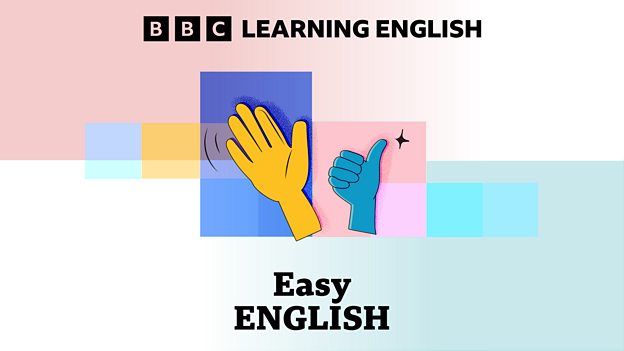6 Minute English
Intermediate level
Should we eat less rice?
Episode 250313 / 13 Mar 2025

_____________________________________________________________________________________________________
Download a free 6 Minute English worksheet and transcript!
Try our free interactive quiz!
______________________________________________________________________________________________________
Try more episodes of 6 Minute English:
______________________________________________________________________________________________________
Introduction
Over half the world’s population eats rice and there's growing demand for it, so is it possible to grow rice in a more eco-friendly way? Beth and Neil discuss this and teach you some new vocabulary.
This week's question
How much water is needed to grow one kilogram of rice?
a) 1,000 to 3,000 litres?
b) 3,000 to 5,000 litres?
c) 5,000 to 7,000 litres?
Listen to the programme to hear the answer.
Vocabulary
commodity
a raw product that can be bought and sold
varieties
different types of one thing
appetite
strong desire or demand
get on board
agree to do something and get involved with doing it
give it a go
try doing something
tangible
real and measurable; not imaginary
TRANSCRIPT
Note: This is not a word-for-word transcript.
Neil
Hello. This is 6 Minute English from BBC Learning English. I’m Neil.
Beth
And I’m Beth. Neil, what type of foods do you often eat?
Neil
Well, basic things that fill me up – that's sort of bread, potatoes.
Beth
Well, food like this, which is regularly eaten by many people, is known as a staple. In Britain, bread is a popular staple, but for large parts of the world there’s another food which is number one: rice.
Neil
That’s right. Over half the world’s population eats rice as the staple food, especially in Asia. But rice is a very ‘thirsty’ crop which needs lots of water to grow, and this is becoming a problem because of droughts and flooding caused by climate change.
Beth
In this programme, we’ll be hearing about a pioneering new technique helping farmers to grow rice in the face of a changing climate. As usual, we’ll be learning some useful new words and phrases, and remember you can find all the vocabulary from this programme on our website, bbclearningenglish.com.
Neil
But first I have a question for you, Beth. Just now I mentioned that rice is a very ‘thirsty’ crop – so how much water is needed to grow one kilogram of rice? Is it:
a) 1,000 to 3,000 litres?
b) 3,000 to 5,000 litres? or,
c) 5,000 to 7,000 litres?
Beth
I'm going to say c) 5,000 to 7,000 litres.
Neil
Well, we’ll find out the correct answer at the end of the programme. Dr Yvonne Pinto is Director General of the International Rice Research Institute, or IRRI for short, based in the Philippines. Here she explains more about the global popularity of rice to BBC World Service programme, The Food Chain:
Dr Yvonne Pinto
Between 50 and 56 percent of the world's population rely on rice as the principal staple. Now, that's roughly about four billion people, and it is one of those commodities that is grown really extensively, particularly in South Asia and Southeast Asia. But increasingly the appetite for it is growing in continents like Africa, and of course there are also Latin American and European rice varieties.
Beth
Rice is a commodity, a produce that can be bought and sold. Like other crops, rice has varieties – different types, for example brown rice, long-grained rice or basmati. Much of the research into rice today is focused on making new varieties that can adapt to the changing environment and grow in conditions of either too much or too little water.
Neil
Over half the world’s population eats rice and there’s a growing demand in Africa and Europe too, so clearly there’s an appetite, a strong desire, for rice worldwide.
Beth
So, is it possible to grow rice in a more eco-friendly way? Jean-Philippe Laborde, director of rice company, Tilda, thinks the answer lies in a new growing technique called Alternate Wet Drying, or AWD for short.
Neil
To grow rice, farmers go through cycles of flooding their fields, or paddies, which then dry out and need to be flooded again. With AWD, measuring pipes are placed 15cm underground so that farmers can check water levels at any part of the field. Normally, rice needs 25 cycles of flooding and drying out to grow, but using AWD this is reduced to 20 cycles, saving farmers water and reducing methane emissions. Here’s Jean-Philippe Laborde, telling Ruth Alexander, presenter of BBC World Service’s, The Food Chain, how he began his AWD experiment with farmers in India:
Jean-Philippe Laborde
We've got, last year, 1,268 farmers on board applying this AWD technique to reduce the overall methane emission.
Ruth Alexander
And how did you persuade those farmers to give it a go?
Jean-Philippe Laborde
That was quite challenging because obviously the main challenge is, for farmers, the apprehension to lose revenues. They need to see tangible results at the end of the crop… that they're getting obviously something better.
Neil
Many Indian farmers got on board with Jean-Phillipe’s experiment. If you get on board with something, you agree to a plan of action and get involved. In other words, you give it a go – you try doing something to see if it works.
Beth
As it turned out, the new technique produced tangible results, results which are real and measurable. Using AWD, the amounts of water and electricity needed to grow rice decreased, methane gas emissions reduced, and on top of that, the amount of rice yielded increased… Right, Neil, isn’t it time you revealed the answer to your question?
Neil
I asked how many litres of water are needed to grow just 1 kilogram of rice, and the answer was 3,000 to 5,000 litres so thirsty, but not as thirsty as you thought.
OK, let’s recap the vocabulary we’ve learned in this programme, starting with commodity, a product, like rice, that can be bought and sold.
Beth
Varieties of something are different types of it.
Neil
If there’s an appetite for something, there’s a strong desire or demand for it.
Beth
If you get on board with an idea or a plan, you agree to do something and get involved with doing it.
Neil
To give it a go means to try doing something.
Beth
And finally, the adjective tangible means real and measurable. Once again our six minutes are up. If you’ve enjoyed this programme, why not try practising the new vocabulary you’ve learned with our worksheet – it’s available to download now from our website, bbclearningenglish.com… and you could also try out the quiz while you’re there! Goodbye for now!
Neil
Bye!
Latest 6 Minute English

How can we help wild bees?
Episode 250717 / 17 Jul 2025
Did you know that many species of wild bees are endangered in the UK? What can we do to help?

Do you need to declutter your home?
Episode 250710 / 10 Jul 2025
Is your home neat and tidy? Or is it full of stuff you no longer need? You might need to declutter!

How do you say sorry?
Episode 250703 / 03 Jul 2025
Different cultures apologise in different ways. How do people say sorry where you are from?

Are plant-based substitutes healthier than meat?
Episode 250626 / 26 Jun 2025
Processed meat has been shown to be bad for our health, but are plant-based meat substitutes any healthier?

How do babies communicate?
Episode 250619 / 19 Jun 2025
What does it mean when newborn babies wave their arms and legs about?

Can climate change affect our mental health?
Episode 250612 / 12 Jun 2025
Is your mental health being affected by climate change?

How important is politeness?
Episode 250605 / 05 Jun 2025
How would you greet somebody you didn't know?

What's your favourite kind of noodle?
Episode 250529 / 29 May 2025
How much do you know about noodles?


Which cooking oil is the best?
Episode 250515 / 15 May 2025
Are some cooking oils better for your health than others?

Should animals be kept in zoos?
Episode 250508 / 08 May 2025
Are zoos an important scientific resource, or an unnecessary abuse of animal rights?

Can cows prevent wildfires?
Episode 250501 / 01 May 2025
How are cows helping to prevent wildfires in Spain?

How climate change affects animal migration
Episode 250424 / 24 Apr 2025
How is climate change affecting animal migration?

Can AI solve crime?
Episode 250417 / 17 Apr 2025
Could artificial intelligence be used to solve a murder?


Are we getting more allergic to things?
Episode 250403 / 03 Apr 2025
Do you know anyone who has 50+ allergies?

Can we boost the immune system?
Episode 250327 / 27 Mar 2025
Can ginger shots, turmeric and cold water swimming boost your immune system?


Should we eat less rice?
Episode 250313 / 13 Mar 2025
Is it possible to grow rice in a more eco-friendly way?



Young women on social media
Episode 250220 / 20 Feb 2025
How do women in different countries experience the online world?

Rage bait: How online anger makes money
Episode 250213 / 13 Feb 2025
How do people make money from rage bait?



How the world learned to love fast food
Episode 250123 / 23 Jan 2025
How did fast food spread around the world?

Which country has the best schools?
Episode 250116 / 16 Jan 2025
How do you compare education systems?

Eating 50-year-old stew
Episode 250109 / 09 Jan 2025
Would you eat a stew that's been in a pot for 50 years?

Are you drinking enough water?
Episode 250102 / 02 Jan 2025
How much water do you drink every day? Is it enough?







